Рекс Стаут - Her Forbidden Knight
Здесь есть возможность читать онлайн «Рекс Стаут - Her Forbidden Knight» весь текст электронной книги совершенно бесплатно (целиком полную версию без сокращений). В некоторых случаях можно слушать аудио, скачать через торрент в формате fb2 и присутствует краткое содержание. Город: New York, Год выпуска: 1913, Издательство: The Frank A. Munsey Company, Жанр: Классическая проза, Любовные романы, на английском языке. Описание произведения, (предисловие) а так же отзывы посетителей доступны на портале библиотеки ЛибКат.
- Название:Her Forbidden Knight
- Автор:
- Издательство:The Frank A. Munsey Company
- Жанр:
- Год:1913
- Город:New York
- ISBN:нет данных
- Рейтинг книги:5 / 5. Голосов: 1
-
Избранное:Добавить в избранное
- Отзывы:
-
Ваша оценка:
- 100
- 1
- 2
- 3
- 4
- 5
Her Forbidden Knight: краткое содержание, описание и аннотация
Предлагаем к чтению аннотацию, описание, краткое содержание или предисловие (зависит от того, что написал сам автор книги «Her Forbidden Knight»). Если вы не нашли необходимую информацию о книге — напишите в комментариях, мы постараемся отыскать её.
Serialized in The All-Story, August — December 1913
Her Forbidden Knight — читать онлайн бесплатно полную книгу (весь текст) целиком
Ниже представлен текст книги, разбитый по страницам. Система сохранения места последней прочитанной страницы, позволяет с удобством читать онлайн бесплатно книгу «Her Forbidden Knight», без необходимости каждый раз заново искать на чём Вы остановились. Поставьте закладку, и сможете в любой момент перейти на страницу, на которой закончили чтение.
Интервал:
Закладка:
But young Mr. Brant had another cartridge in his belt. He asked that an exception be noted on the ruling of the court, then turned to the witness:
“Mr. Sherman, where were you on the evening of the 11th of December last?”
“At the rooms of Pierre Dumain, a palmist.”
“Where are those rooms?”
“In West Twenty-first Street.”
“What is the number?”
“I don’t know.”
“Who was there with you?”
“The defendant, Knowlton, and four or five others.”
“What are the names of the others?”
“Tom Dougherty, Pierre Dumain, Bub Driscoll, Sam Booth, and Harry Jennings.”
“What were you doing there?”
The witness hesitated a moment before he answered:
“Having a fight. You see—”
“No; answer my questions,” interrupted the lawyer. “Were you fighting?”
“No, sir.”
“Who was?”
“Knowlton and Driscoll. Knowlton knocked him out.”
“And then?”
“Then Knowlton and Dougherty fought. It lasted ten or fifteen minutes and—”
“Now tell the court and the jury exactly what happened.”
“Well, Knowlton was getting the better of Dougherty and had him up against the wall, when all of a sudden somebody threw a piece of bronze or something at Knowlton and hit him on the head. He dropped like a shot.”
“Then what did you do?”
“I ran over toward the door, where Knowlton was lying on the floor, and so did the others. As I was standing near him I saw a wallet sticking out of his hip pocket, and I knew they—”
“You mean Knowlton’s pocket?”
“Yes. And I was afraid one of the guys might take it, so I stooped down when no one was looking and pulled it out of his pocket — it was nearly out already — and put it in my own, thinking to keep it for him. Dumain had sent somebody—”
Mr. Brand interrupted.
“Never mind the others. What did you do?”
“I waited till the doctor came, and when he said Knowlton’s injury was not serious I went home. I believe Knowlton stayed at Dumain’s rooms all night. When I got home I put his wallet away—”
“Why didn’t you return it to him before you left Dumain’s rooms?”
“Because he was still half unconscious. He was in no condition to talk to. Then the next afternoon, I think it was—”
“Aren’t you sure?”
“Yes,” said the witness, after a moment’s hesitation, “it was the next afternoon. I took the wallet out of the drawer where I had put it away, thinking to take it round to Knowlton’s rooms, and as I put it in my pocket I happened to look into it, just out of curiosity, and I nearly fell over when I saw it was full of counterfeit—”
Lawyer Siegel sprang to his feet:
“I object, on the ground that the witness is incompetent.”
“Sustained,” said the judge.
“Exception,” said Mr. Brant.
The judge turned to the witness:
“Confine yourself to a recital of your own actions.”
“Did you return the wallet to Knowlton?” asked the prosecuting attorney.
Sherman answered: “No, sir.”
“What did you do with it?”
“I kept it awhile, then I took it to Detective Barrett, of the secret service.”
The prosecuting attorney took something from a leather case on the desk before him and, handing it to the witness, asked:
“Do you recognize that?”
“Yes,” said Sherman. “It’s the wallet I’ve been talking about.”
“Is it the one you took from Knowlton’s pocket?”
“Yes, sir.”
“Inspect the contents. Are they the same as when you first saw it?”
There was a pause while the witness examined each of the compartments of the wallet, then he answered:
“Yes, sir.”
“Everything the same?”
“Yes, sir.”
Mr. Brant stepped forward and took the wallet from Sherman and handed it to the clerk of the court:
“Your honor,” said he, “I wish to introduce this wallet as evidence, with its contents. I shall call an expert later to prove that they are counterfeit.”
This was a blow to the defense which, though not entirely unexpected, appeared to be serious. The Erring Knights looked gloomily at each other, but forbore to speak.
Lila was scarcely breathing in the intensity of her anxiety, while Mrs. Berry patted her hand soothingly. The accused was whispering excitedly to his attorney, who listened with keen interest, nodding his head with satisfaction at intervals. The result of this conference was to appear later.
The prosecuting attorney asked his witness a few more questions, for the most part unimportant, then turned him over for cross-examination.
Lawyer Siegel rose to his feet. He had not an impressive appearance, but as he stepped directly in front of Sherman he shot at him a glance so severe and terrifying that the witness involuntarily recoiled.
The tone was no less severe:
“How long did you keep this wallet before you turned it over to Detective Barrett?”
Sherman’s answer was low:
“About two months.”
“Why?”
But Mr. Brant objected to the question, and was sustained.
Siegel resumed:
“You say somebody hit Knowlton on the head with ‘a piece of bronze or something.’ Who was it that threw that bronze?”
The witness was silent.
“Who was it?” repeated the lawyer.
Sherman stammered:
“I did.”
“I see. Had you been fighting with him?”
“No.”
The attorney was shouting his questions with great rapidity, giving the witness barely time to answer, and no time at all to think. Sherman was nervously grasping the arm of his chair.
“Were you standing very close to Knowlton when you threw the bronze at him?”
“No, sir.”
“Across the room, weren’t you?”
“Yes, sir.”
“And as soon as he fell Dumain and Dougherty ran over and knelt down by him, didn’t they?”
“Yes, sir.”
“And Jennings stopped you when you started to leave the room, didn’t he?”
“Yes, sir.”
The questions were coming like the rattle of a Gatling gun.
“And he forced you back to the corner?”
“Yes, sir.”
“Then he went to help the others with Knowlton?”
“Yes, sir.”
“You were over in the opposite corner alone?”
“Yes, sir.”
“And when you found the wallet, was it in the coat or the vest?”
“The coat.”
“Which pocket?”
“The insi—” Sherman began; then, realizing suddenly what he was saying, stopped short with a look of horror.
He was trapped.
The reason for his previous story of having taken the wallet from Knowlton’s hip pocket as he lay on the floor could be found only in the tortuous channels of Sherman’s treacherous brain.
Undoubtedly, he had thought to make his evidence stronger by making it appear that the thing had actually been taken from the person of the accused, and had anticipated the difficulty of proving that the coat was Knowlton’s. And now he was fairly caught.
Siegel pursued his advantage relentlessly. He hammered the witness with questions, and Sherman stammered and grew red in the face with helpless anger, and finally admitted that his first story had been false. That was all Siegel wanted; he sat down with a smile of triumph; his forehead was covered with beads of sweat.
On redirect examination the prosecuting attorney made a valiant attempt to bring his witness out of the hole he had dug for himself, but in vain. Sherman was hopelessly confused; he made matters worse instead of better, and ended by refusing to answer at all. He was dismissed by the court with a reprimand, and at a sign from Mr. Brant seated himself on the front row of benches.
For a few moments the progress of the trial was halted by a conference between the prosecuting attorney and Detective Barrett, while Knowlton whispered animatedly to his counsel and the faces of the Erring Knights beamed with joy.
Читать дальшеИнтервал:
Закладка:
Похожие книги на «Her Forbidden Knight»
Представляем Вашему вниманию похожие книги на «Her Forbidden Knight» списком для выбора. Мы отобрали схожую по названию и смыслу литературу в надежде предоставить читателям больше вариантов отыскать новые, интересные, ещё непрочитанные произведения.
Обсуждение, отзывы о книге «Her Forbidden Knight» и просто собственные мнения читателей. Оставьте ваши комментарии, напишите, что Вы думаете о произведении, его смысле или главных героях. Укажите что конкретно понравилось, а что нет, и почему Вы так считаете.
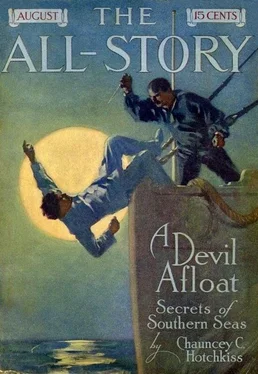
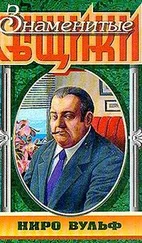
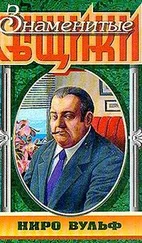

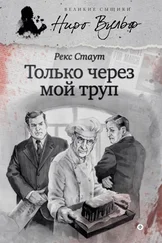

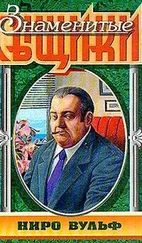
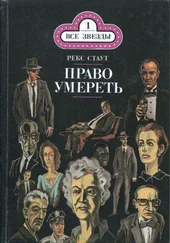
![Рекс Стаут - Лига перепуганных мужчин [litres]](/books/394342/reks-staut-liga-perepugannyh-muzhchin-litres-thumb.webp)